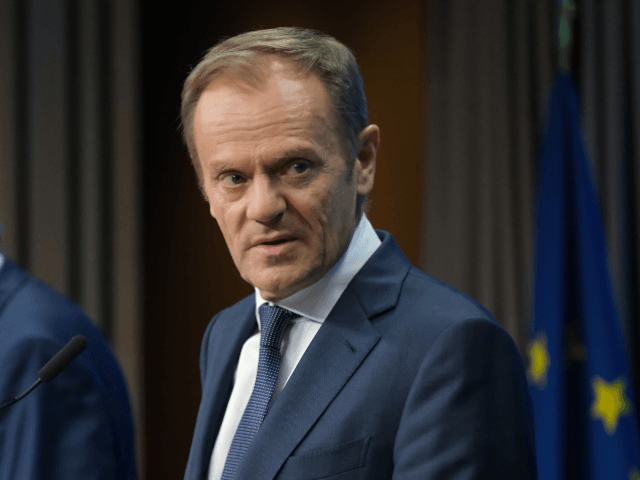Roadblocks to delivering Brexit have acted as a “vaccine” against Euroscepticism in the European Parliament elections, Donald Tusk has said.
While populist, pro-national sovereignty parties made some significant gains in last week’s elections, the European Council chief bragged that the bloc still boasted “a pro-European majority” in parliament.
“The vast majority voted for a more effective, stronger and united EU while rejecting those who want a weak Europe,” he told a news conference Tuesday. “This is powerful sign. Europe is the winner in these elections.”
“I have no doubt that one of the reasons why people on the continent voted for a pro-European majority is also Brexit,” Tusk said, speaking after a meeting at which EU leaders discussed who they wanted to see fill Brussels’ most powerful positions.
“As Europeans see what Brexit means in practice they also draw conclusions,” the Polish Eurocrat stated, asserting that issues Britain has been faced with since the 2016 referendum took place have acted as “a vaccine against anti-EU propaganda and fake news.”
These latest comments from Tusk, who previously proclaimed there was a “special place in hell” waiting for UK politicians who backed Brexit, echoed sentiments recently expressed by the outgoing European Commission chief, Jean-Claude Juncker.
In a speech declaring his disdain for “stupid nationalists” in contrast to his love towards “[populations] coming from far away”, the former leader of Luxembourg appeared to suggest the EU’s negotiations with Britain had succeeded in warning other nations in Europe that Brussels would make leaving the bloc as difficult as possible.
“The number of those in favour of the European Union is increasing because people are watching what is happening and they are seeing that leaving the European Union is not as easy as they were told,” Juncker said last week.
Evidence there was some truth in the Eurocrats’ claim — one also voiced by outgoing EU parliament leader Antonio Tajani — came from Scandinavia earlier this month when the populist Sweden Democrats (SD) announced the party had dropped its policy promising a UK-style referendum, after seeing how Brexit has unfolded.
Predictions that Brussels’ hardline position with the United Kingdom would quell populism in the bloc are likely to have been premature, however, with last week’s vote seeing significant Eurosceptic gains in countries such as Poland and Hungary.
Leaders from such nations believe the bloc can be steered away from Eurocrats’ dream of a liberal EU superstate, and towards a Europe of nations which is structured to benefit the continents’ peoples rather than one which serves “bureaucrats, bankers [and] financiers”, as Italian Deputy Prime Minister Matteo Salvini put it recently.

COMMENTS
Please let us know if you're having issues with commenting.